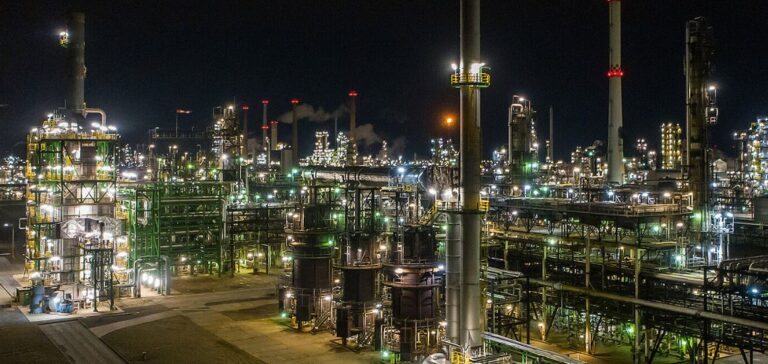In the town of Schwedt, in eastern Germany, the PCK refinery has operated without Russian oil since January 2023, following the European Union’s embargo imposed after Russia’s military offensive in Ukraine. This historic supply disruption, via the Druzhba pipeline built in the 1960s, continues to weigh on the site’s economic viability and local employment.
Declining production capacity and an uncertain future
Once a flagship of East German industry, the Schwedt refinery employs around 1,200 people and is currently running at about 80% of its capacity. Deprived of Russian crude, it now relies on deliveries through the German port of Rostock and the Polish port of Gdansk, a logistical setup that has raised production costs. The site currently processes 25 different types of oil, affecting margins and placing its finances in deficit, according to Danny Ruthenburg, chairman of the works council.
Mounting political pressure to resume Russian oil imports
The rise of the far-right party Alternative für Deutschland (AfD), which supports lifting the sanctions, has intensified calls to restore energy ties with Moscow. Peggy Lindemann, AfD city councillor in Schwedt, claims the embargo harms the German economy more than Russia’s. This stance has found unexpected support in Dietmar Woidke, Social Democrat president of the Brandenburg region, who has publicly expressed his wish for a return to normal economic relations with Russia.
A state-controlled refinery with no buyer
Mainly owned by Rosneft Deutschland, the Schwedt refinery has been under German government trusteeship since September 2022. This control was extended in March with a commitment from Rosneft to sell its stake. However, according to German investigative media outlet Correctiv, no buyer has come forward so far, while the issue was reportedly discussed during diplomatic talks between the United States and Russia.
The geopolitical weight of energy infrastructure
In parallel with the Schwedt case, discussions on a potential revival of the Nord Stream gas pipelines linking Russia to Germany via the Baltic Sea were reported by Russian Foreign Minister Sergey Lavrov. Although the German government remains opposed to resuming energy flows from Russia, a mix of economic interests and social pressure is making it increasingly difficult to uphold the firm stance adopted since 2022.





















